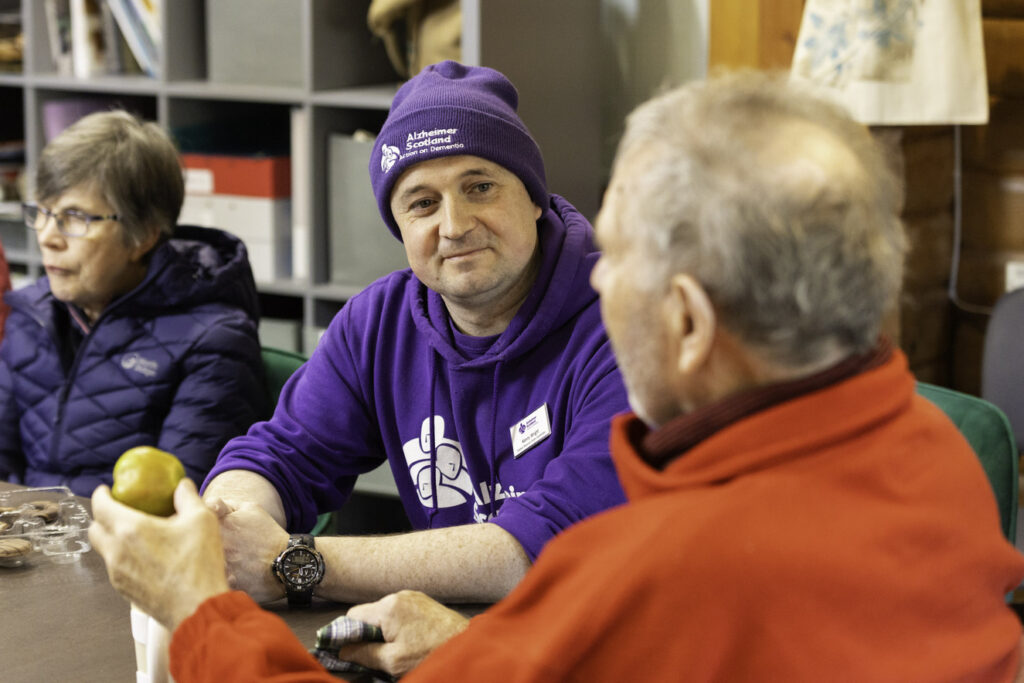Younger people with dementia
Learn more about young onset dementia, its causes, symptoms, and how you can live well as a younger person with dementia.
What is young onset dementia?
When someone under the age of 65 is diagnosed with dementia it is described as ‘young’ or ‘younger onset’ dementia. This distinction is not for any medical reason, but simply because 65 was the usual age of retirement for many people.
It is estimated that there are around 3000 people under 65 in Scotland with dementia. Alzheimer Scotland has published a booklet for anyone with a diagnosis of young onset dementia and it aims to support people to live well with their diagnosis.
You can download a PDF copy of the booklet here. For external organisations who wish to order bulk printed copies, please contact info@alzscot.org for print and postage costs (minimum order of 100 copies).
You can also keep reading this page for more information young onset dementia.
Causes of young onset dementia
Just like dementia at any age, young onset dementia is caused by a wide variety of different diseases. However, it is more likely a younger person will have a rarer type of dementia. It is also more likely that young-onset dementia will be genetically inherited. It is less likely that dementia in younger people will be caused by a long-term health condition.
Symptoms of young onset dementia
Symptoms of young onset dementia are similar to symptoms of dementia at any age but may be noticed in different ways to due to the lifestyle of the person experiencing the symptoms.
For example, many younger people with dementia say their first symptoms appear at work, like forgetting appointments or how to do familiar jobs.
Diagnosing young onset dementia
Young onset dementia is relatively rare and younger people with dementia are more likely to dismiss early and mild symptoms or blame them on other causes, such as stress at work, relationship issues or the menopause. This can mean the person doesn’t get early support they might need.
However, getting an accurate and timely diagnosis of dementia is important, so if you notice any symptoms that could signal dementia it is recommended you get them assessed. The process of assessment and diagnosis usually starts with a visit your GP, though you may need referred to a specialist for a more comprehensive assessment.
Living with a young onset dementia
People who develop young onset dementia in middle age, or even younger, often have different needs from older people. For example, they may still be working when they are diagnosed, they may have a young family, and their financial situation may be different. Because most people with dementia are over 65, sometimes younger people don’t feel at home in services or support groups which are mostly used by people much older than they are.
Alzheimer Scotland provides specialist young onset support, activities and groups for people with dementia under the age of 65 in some areas. Use our community and support page to find out what is available in your area, or contact your local dementia advisor to find out more.
Alzheimer Scotland can also help through our 24 hour Freephone Dementia Helpline, Brain Health & Dementia Resource Centres and our Post Diagnostic Support Link Workers.
